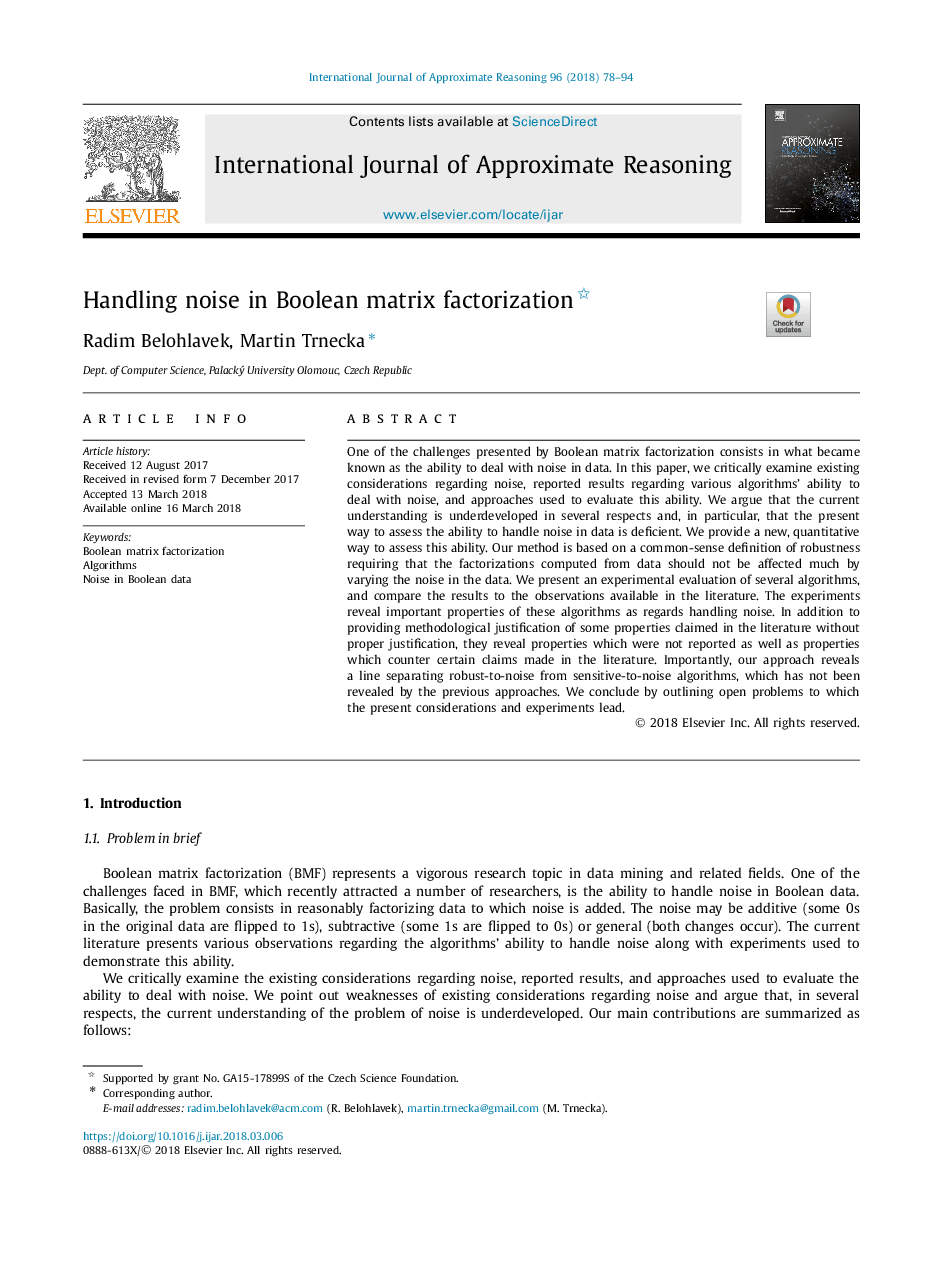| Article ID | Journal | Published Year | Pages | File Type |
|---|---|---|---|---|
| 6858796 | International Journal of Approximate Reasoning | 2018 | 17 Pages |
Abstract
One of the challenges presented by Boolean matrix factorization consists in what became known as the ability to deal with noise in data. In this paper, we critically examine existing considerations regarding noise, reported results regarding various algorithms' ability to deal with noise, and approaches used to evaluate this ability. We argue that the current understanding is underdeveloped in several respects and, in particular, that the present way to assess the ability to handle noise in data is deficient. We provide a new, quantitative way to assess this ability. Our method is based on a common-sense definition of robustness requiring that the factorizations computed from data should not be affected much by varying the noise in the data. We present an experimental evaluation of several algorithms, and compare the results to the observations available in the literature. The experiments reveal important properties of these algorithms as regards handling noise. In addition to providing methodological justification of some properties claimed in the literature without proper justification, they reveal properties which were not reported as well as properties which counter certain claims made in the literature. Importantly, our approach reveals a line separating robust-to-noise from sensitive-to-noise algorithms, which has not been revealed by the previous approaches. We conclude by outlining open problems to which the present considerations and experiments lead.
Keywords
Related Topics
Physical Sciences and Engineering
Computer Science
Artificial Intelligence
Authors
Radim Belohlavek, Martin Trnecka,
